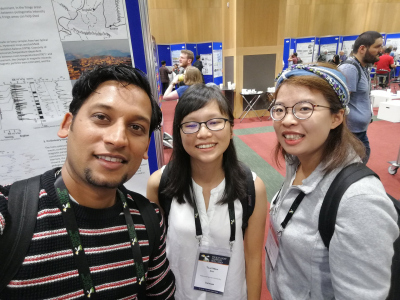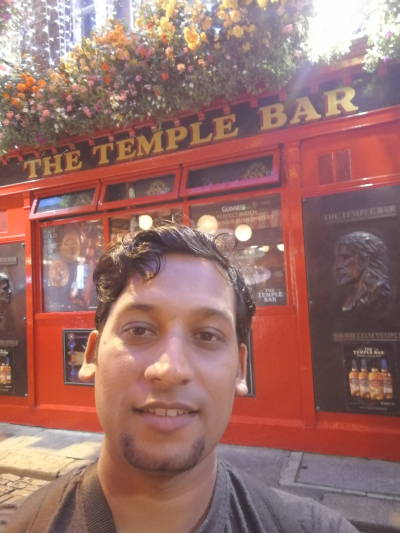- ArcTrain
- Training reports
- INQUA 2019
INQUA 2019
July 25th - 31st 2019, Dublin, Ireland
Summary
The INQUA (International Union for Quaternary Research) is an International union of scientists and institutions dedicated to improved communication and collaboration in all aspect of Quaternary research including oceanic and polar research with a goal to understand and reconstruct paleoenvironment. The 2019 conference took place from 25 to 31 July at the Dublin Convention Centre in Ireland. More than 2000 International scientists were involved in this conference.

Like previous years, scientists met this year too in a multidisciplinary conference to discuss new research results and improvements in the experimental and applied aspect of Quaternary research. There were many major themes for this year meeting, from which I presented my poster in the session titled ‘Arctic sea ice reconstructions and proxy development’. I also had the opportunity to attend other sessions relevant to my Phd work dealing with sea ice cover, climate change and paleoclimate reconstructions. It was first time for me to participate in INQUA and first time in Dublin, and I really enjoyed the opportunities for networking and participating in the workshops and discussing my research. Later, I had also discussion with my second PhD supervisor from Canada, Prof. Dr. Anne de Vernal, who happen to be present at the meeting.
Conference activities and benefits
The conference started with inspiring opening speech by president of Mary Robinson Foundation- Climate Justice, Mary Robinson, who was also former president of Ireland from 1990-1997. In the nest days, I attended many interesting talk and posters dealing with Quaternary climate evolution. The conference was filled with lots of workshops, interesting presentations and interesting discussions afterwards. I had the opportunity to participate in mid-congress field trip to Rathcroghan archeological landscape and its quaternary environment on a full day visit to the midst of Ireland. Also, I met a number of people who I knew before from Canada, who were involved in the previous expeditions to the Arctic. I also got good feedback from several renowned scientists and had a chance to discuss my project with my second supervisor from Canada.

Last but not the least, I liked Dublin very much, even if the weather might not have been so great then. I also had the opportunity to visit ‘Guinness Irish Museum of Dublin’ for the congress get-together dinner and it was a nice and relax atmosphere for social interactions with other scientists. I’ve also use this opportunity to visit the ‘Book of Kells’ library in Trinity College, one of the oldest in Europe. It was a very exciting experience to see such a good organization in such a big meeting. I personally feel, scientifically and personally more motivated and experienced now to present my research with big audiences. I would like to be thankful for ‘ArcTrain’ for giving me such a nice opportunity, guidance and funding resources.
Jeetendra Saini


